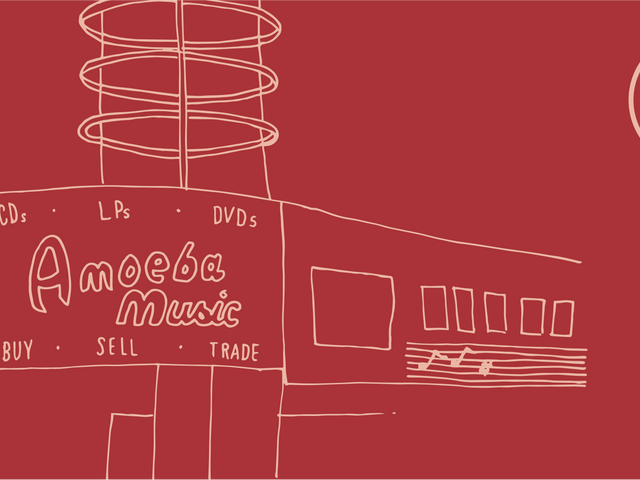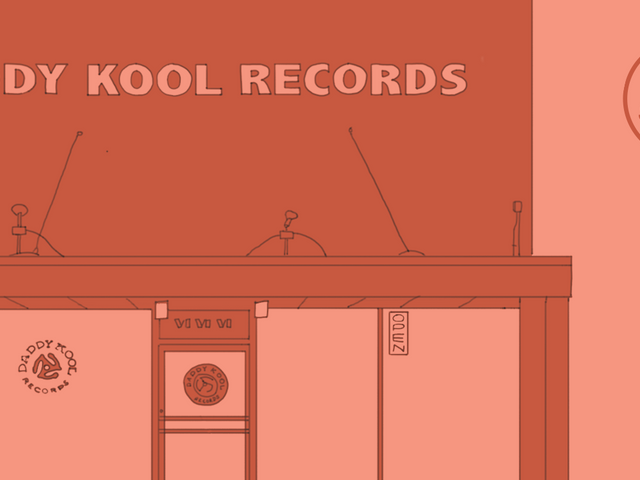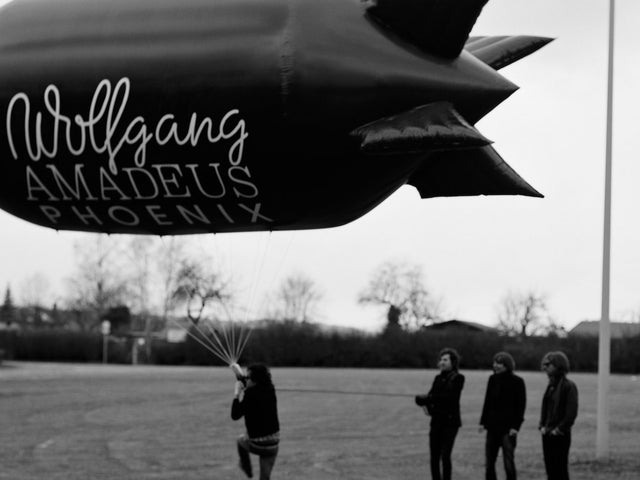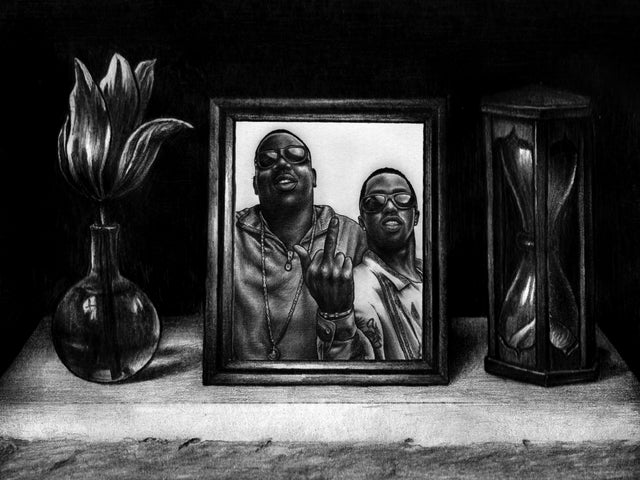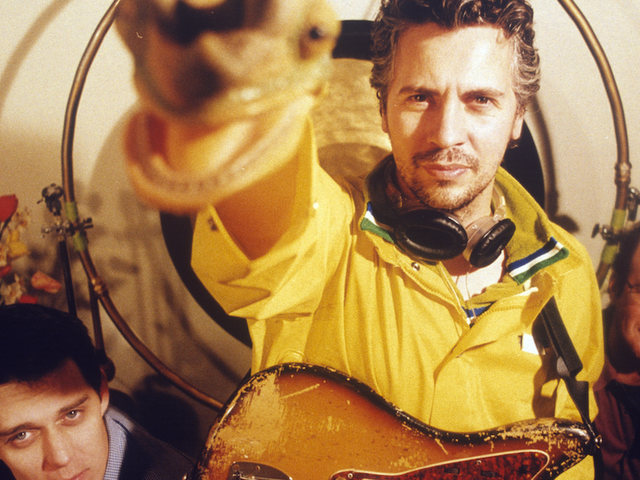Shangri-La Records Is The Best Record Store In Tennessee
The 50 Best Record Stores In America is an essay series where we attempt to find the best record store in every state. These aren’t necessarily the record stores with the best prices or the deepest selection; you can use Yelp for that. Each record store featured has a story that goes beyond what’s on its shelves; these stores have history, foster a sense of community and mean something to the people who frequent them.
This is a piece about Shangri-La Records—but it’s just as much a piece about the city that made the store the place it is.
As a city, Memphis is responsible for tossing some of history’s filthiest shirts into the Southeast’s heaping basket of dirty laundry. Prior to the Civil War, it was the regional hub for domestic slave trade and the economic center of the industries made profitable through slavery—and during Reconstruction, an especially notorious hotbed of race riots. In the 1870s, a series of yellow fever epidemics wiped out most of the city’s population, costing Memphis its city charter and inspiring its civic leaders to isolate its most impoverished ill citizens in refugee camps. In the early 20th century and beyond, Memphis perfected authoritarian politics under E.H. “Boss” Crump, neglected its poor and disenfranchised and abused its black citizens. It’s a full bingo card of all the civic and social problems a place could have.
Yet like so many large cities surrounded by mostly nothing, Memphis represented a way out and a way forward to people in the region: a place where it seemed possible to sneak through the gate, or find a way to make yourself the gatekeeper—both strategies equally dependent on building and sustaining supportive communities. Memphis has never been a united city, but it has always been a place where strife begets solidarity—a characteristic deeply intrinsic to the city’s music community at almost every point in history.
The real reason the music you associate with Memphis is so good? It’s because it hasn’t been over-policed by corporate tastes or interests. So much of it transpired organically, emerging from communities putting in the work, happening because musicians who made it to the top of the ladder turned around to help others up. Rufus Thomas became a DJ at WDIA and emcee at Beale Street’s Palace Theater and used his power to turn up the likes of BB King and Bobby “Blue” Bland. Jim Stewart, co-founder of Stax Records, gave then-chauffeur Otis Redding a shot at recording a song. A musician and co-founder of Goner Records started Jay Reatard’s career after receiving his demo tape in the mail. Appearing on a Three 6 Mafia song has been a career catalyst for pretty much every Memphis rapper you’ve ever heard of. Etc. Etc. Etc.
This is not to say that everyone has always had a clear and equal shot at success—but in a city where Sun and Stax were open to amateurs and an entire street dominated by black-owned businesses was one giant jam session night after night for decades on end, the odds of getting discovered start to get a little better. The city’s saving grace has always been its culture—and its culture’s saving grace is that it is built from the ground up, not from the top down.
For as long as Memphis has existed, there’s been plenty to be proud of and ashamed for. Yet with a rich tapestry of new problems emerging in the years following Dr. Martin Luther King’s assassination at the city’s Lorraine Motel (you know ’em well; they’re not unique to Memphis: white flight and the associated flight of resources, and the years and years of social and economic fallout such a situation creates), when I lived in Memphis in the early aughts, Memphians talked about what the city used to be rather than what it could or would be. At the time, the city’s cultural attractions shared the same attitude and presented a Memphis preserved in amber, like its music either ceased to exist or ceased to evolve after the 1970s even though Memphis remained a place where artists and musicians could thrive within reason and within a supportive community. This attitude poisoned the way visitors and residents alike perceived the city—and led Memphis down the Worst, Least Productive Path: letting mourning what it once was define its present.
Memphis became a city that haunted itself. How do you find your way forward when you’re always looking backward? How do you honor what you were without letting it hamper what you could become? Fortunately, the best record store in the whole damn state had—and continues to have—some answers for Memphis.

Shangri-La Records turns 30 this year and is exceptional by all the most obvious metrics you might use to measure a record store’s greatness—friendly staff, deep inventory, eclectic finds aren’t hard to come by, they’ll buy your gramma’s records if they’re in good shape—but its best qualities are centered in all the ways it is so thoroughly of Memphis. Tucked inside a house that’s over a century old, its eccentric founder Sherman Wilmott originally intended for Shangri-La to be something like a spa for the tinfoil hat set, outfitted with sensory deprivation flotation tanks and goggles that pulsed lights in your peripheral vision attached to headphones that played soothing music. There’s a chance this could be a legitimately viable business now, but back in the 1980s we were all less anxious and unable to buy crystals on Etsy as a substitute for developing an actual personality, so Wilmott got a single crate of records and turned it into a store.
In 1999, Wilmott left Shangri-La to become the Stax Museum’s first curator, handing the reins to musicians Jared and Lori McStay and Misspent Records owner John Miller, the three of whom still co-manage the store today. But while he ran Shangri-La, Wilmott set the tone for its relationship to the city. He functioned a bit like a one-man underground tourism bureau and cultural champion for Memphis, pointing visitors who whined about running out of things to do toward off-the-beaten-path attractions like Aretha Franklin’s birthplace in South Memphis, self-publishing a guide called Kreature Comforts: A Low-Life Guide to Memphis, and even running Ultimate Memphis Rock N Roll Tours (first out of his own van, then in more legit settings). In the 1990s, when he discovered that no record stores in the city carried records produced by Memphis’ independent labels—meaning consumers lacked access to albums that were being made a few blocks away from where they lived—Shangri-La started carrying the releases as imports, incentivizing musicians to record and release their music in Memphis because they had places that would support them.
Beyond going the extra mile to ensure local musicians’ records are readily available, Shangri-La has always had a well-deserved reputation for hiring musicians and music critics to work in the store, helping local bands promote their shows and creating opportunities at the store for bands to perform, including two annual music festivals, Sweatfest and Purgefest (the aptly named latter festival also plies attendees with thousands of bargain records for purchase—go, it’s amazing). Wilmott even started a label and publishing company, Shangri-La Projects, still chugging along today, to give Memphis musicians another outlet to get their work out there and to make being a musician in this city as financially viable as possible. It’s a label in the business of celebrating all that Memphis has to offer, from terrifyingly comprehensive garage rock compendiums to the soundtrack to acclaimed documentary Memphis Heat: The True Story of Memphis Wrasslin’, featuring music recorded especially for the film (a film Wilmott himself co-produced, and you should watch).
Shangri-La long ago figured out how to do what so many other Memphis institutions are just now figuring out how to do: break down the city’s self-imposed temporal boundaries and simultaneously celebrate what Memphis once was, showcase what it is today and help to shape what the city will become.
This would be a better piece if I had more impressive Shangri-La record-hunting tales of my own to share with you, but I lived near the store at a time in my life when that simply wasn’t the case. I left east Tennessee in 2001 to attend college in Memphis and then moved to Chicago in 2007, so most of my Shangri-La shopping experiences took place between ages 18 and 24.
Reader, I was not a Cool 18-to-24. The first computer my family ever bought was the laptop I got for college—so although I was obsessed with music, lack of access meant my working knowledge of music never matched the level of my obsession. I read music magazines voraciously, but opportunities to listen to whatever I was reading about were hard to come by: I could hear it on the radio or MTV by happenstance, hope that what had piqued my interest was something older that I could find in my parents’ record collection or could rent at the library, or spend whatever money I’d saved on an overpriced cassette or CD. I learned about a lot of music I never got a chance to hear, and my written list of albums and artists I vowed to check out whenever I had the chance filled page after college-ruled page.
College represented an opportunity to drink from the firehose. I had in-home internet access for the first time in my life; Napster, Kazaa and Limewire all lived their mayfly lifespans during my late teens and early 20s; I was living in a big city with deep ties to music history, a local music scene and several independent record stores that weren’t just there to peddle you what you’d heard on the radio. Shangri-La was the closest one to where I lived, and the best.
It was the place of a lot of accidental and intentional firsts. The store itself was where I first heard Guided By Voices (“Watch Me Jumpstart” was playing over the sound system and I immediately bought Alien Lanes)—and the place I that helped me hone an abiding love of Britpop after I developed a crush on a guy who was really into the stuff (I didn’t get the guy; I did get a lot of Pulp albums). Shangri-La was also my gateway into the local music scene of my new home, the place where I learned about Alicja Trout and River City Tanlines, Reigning Sound, the Oblivians, Harlan T. Bobo, The Reatards—all this Memphis music I’d never heard of before I moved there but was happening all around me. I’d ask the staff at the store about the bands they were in and the bands they loved, and then go check them out at venues around the city. I’d see a band at the Hi-Tone and then go to Shangri-La the next day and buy whoever I’d heard. Years later at my first post-college job as an event coordinator at the Center for Southern Folklore, I’d book bands I first learned about from someone at Shangri-La. I felt like a part of something, blissfully ensnared in the same fine threads that linked the artists in that city, and I have Shangri-La to thank for that.
Shortly after Thanksgiving last year, I was #blessed to speak with current owner Jared McStay about the store and about Memphis, and he said something that rang extremely true and stuck with me: “If you’re a musician in Memphis, it’s always been tough to get Memphians to support what you’re doing until you’ve gotten some national recognition. You need external validation before people here will pay attention to you.”
Indeed, Memphis has spent the past several years in a comfortable feedback loop with National Recognition and Self-Appreciation at opposite poles. The city’s corporate and cultural institutions now regularly use Memphis’ grittiness, warmth and eccentricity as advertising tools—and while nothing is worse than a brand latching onto something real and true and strip-mining all its meaning, for now it’s refreshing to see the city celebrate what it is today instead of what it used to be, claim an identity wholly unique to Memphis and watch how the city’s best qualities transform typically lame things like NBA fandom into something amazing. And I can’t see how Memphis would have gotten to this point without businesses like Shangri-La putting in the work every day to make the city better and help the city see the best in itself.
To state the obvious, there’s no practical need for record stores to exist anymore. You can stream 30 million songs from your phone; you can order any physical product you want from the comfort of your couch and have it delivered to your door. Sheer nostalgia aside, the raison d’etre for record stores in 2018 is the role they play in reminding us that music has the power to build and sustain communities—that a shared appreciation of a song can start a friendship, change a life, spark a movement. That’s Memphis’ proud legacy and probable future. It’s my idea of Shangri-La—and it’s Shangri-La Records.
Up next, we travel to a record store in California.
Susannah Young is a self-employed communications strategist, writer and editor living in Chicago. Since 2009, she has also worked as a music critic. Her writing has appeared in the book Vinyl Me, Please: 100 Albums You Need in Your Collection (Abrams Image, 2017) as well as on VMP’s Magazine, Pitchfork and KCRW, among other publications.
Related Articles
Join the Club!
Join Now, Starting at $36Pages

Exclusive 15% Off for Teachers, Students, Military members, Healthcare professionals & First Responders - Get Verified!

